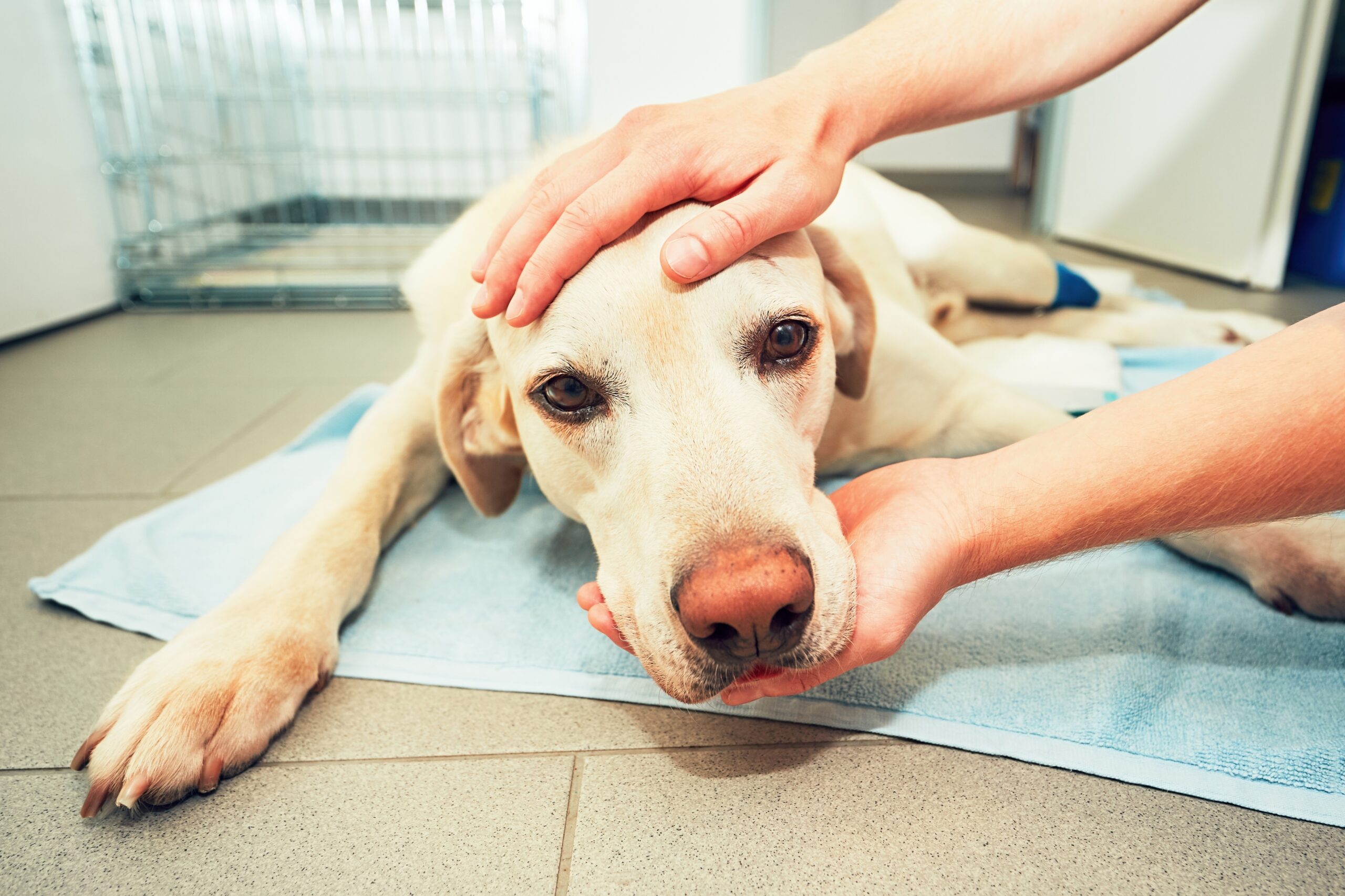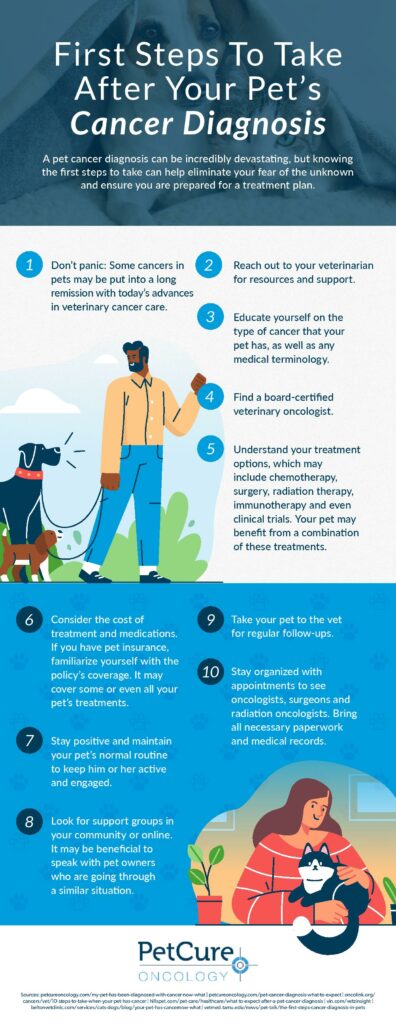
Pet Cancer Diagnosis
As a pet owner, you try to give your animal companion the best possible care. That means taking your furry friend for walks, regularly monitoring their health and making yearly visits to the vet. However, sometimes animals get sick, and the biggest fear that might come to mind is the “big C,” or cancer. If your pet has been diagnosed with cancer, it’s easy to feel helpless and overwhelmed. You may have many questions and concerns about your pet’s future. Read on to learn some steps you can take to help navigate this uncertain and difficult time.
Did you know that cancer in pets is common? In fact, this year, about six million dogs[BV1] and six million cats will be diagnosed with the illness. Although a cancer diagnosis for your pet can be upsetting, it does not necessarily mean there is no hope. With today’s modern advances in veterinary cancer care, some pets are living longer, more fulfilled lives. In some cases, certain cancer types in pets can go into a long remission. However, it’s important to note that not all cancers are the same. For this reason, it’s vital to do your research and learn about your pet’s illness. Reach out to your veterinarian with any questions and concerns, as he or she should be able to guide you through this difficult journey.
Find a board-certified veterinary oncologist to get a second opinion. You can also discuss treatment options for your pet. These might include chemotherapy, surgery, radiation therapy, immunotherapy and even clinical trials. Treatment options vary and depend on numerous factors such as the extent of the disease, concurrent medical problems and quality of life issues. Additionally, various tests, procedures and medications can be costly. If you have pet insurance, it may help cover some or even all the treatments needed. However, this depends on the policy’s coverage.

Stick to your normal routine — whether that’s going for daily walks or playing at the dog park. Remember that your furry friend doesn’t know about their cancer diagnosis. However, they may sense your feelings and emotions. For this reason, it’s important to remain strong and keep your pet’s life as normal as possible by maintaining their usual routine. You might also consider reaching out to support groups online or in your community. Talking with other pet owners who are going through a similar situation may be beneficial.
For more steps to take after a pet cancer diagnosis, see the accompanying resource.
[BV1]https://fetchacure.org/resource-library/facts/
About the Author:

PetCure Oncology
PetCure Oncologymanages a national network of cancer care centers for pets. The industry leader in veterinary radiation therapy, the PetCure network includes physical treatment centers across the United States and a telehealth infrastructure that can reach veterinarians and pet owners anywhere. PetCure's clinical and research departments are led by leading board-certified veterinary oncologists.
